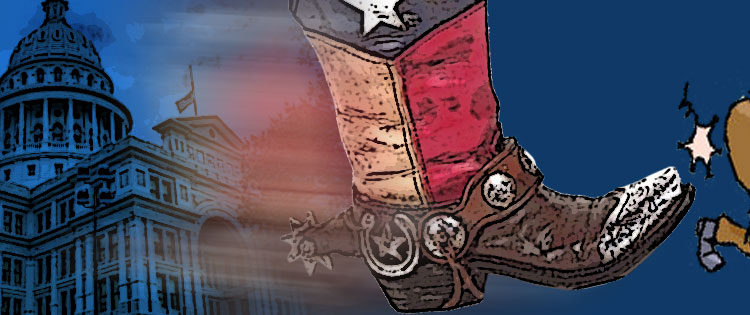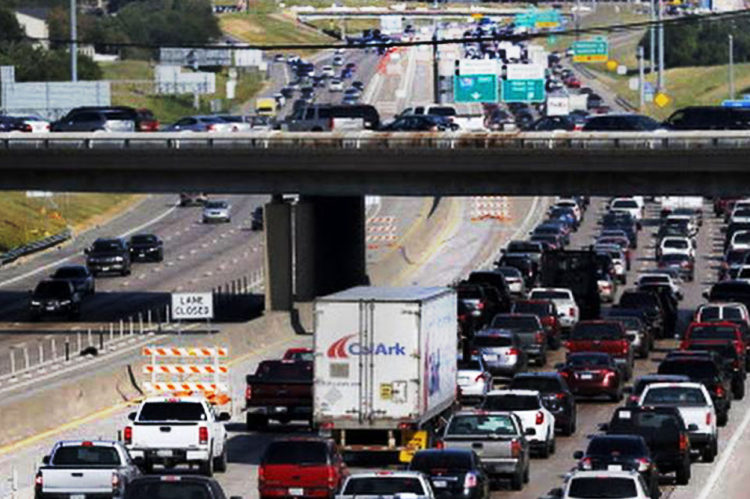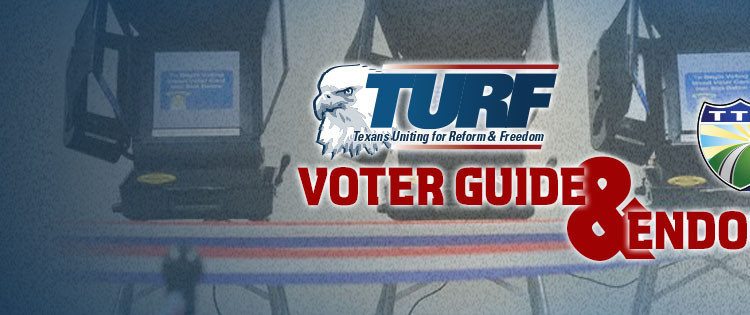Link to article here. (Click on the link at this site to view the video of Miller gettin’ cozy with a lobbyist)
Despite defeat, Miller executes more damage to property rights
By Terri Hall
June 1, 2016
After an onslaught of threats that remain unresolved, residents of the Texas Hill Country just got a little retribution. From issues with land development and water to toll roads and property rights, Texas House District 73 yearned for new leadership. After an ugly, heated run-off election last week, it got it. Incumbent State Representative Doug Miller, an establishment Republican and staunch supporter of liberal Republican Speaker Joe Straus, was ousted by newcomer conservative businessman Kyle Biedermann of Fredericksburg. With Miller set to appear as an ‘expert witness’ on behalf of the developer of the controversial Johnson Ranch housing development, a very public showdown between neighboring landowners and this lame duck representative is taking shape.
The vast majority of the problems facing Hill Country residents over the last decade stem from out of control development. Between commercial development and massive new residential housing developments popping up across the scenic and once pristine Hill Country, issues like traffic, water shortages and rate hikes, sewage dumping, and even flooding have plagued residents, and they’re not getting much help from their elected representatives. Indeed, many see Miller as part of the problem.
The latest in the dispute over a wastewater permit involving the Johnson Ranch has emerged through the Johnson Ranch Municipal Utility District (MUD), which is a quasi-governmental entity controlled by the developer of Johnson Ranch. MUDs, which are controlled by private developers, allow private corporations to gain access to the governmental power of eminent domain. Naturally, landowners who have their private property stolen in the name of a public use for what amounts to private gain fight back. Such is the case with Terrell and Pat Graham who have been forced to spend a small fortune in legal fees defending Pat’s family homestead that’s been a continuous working cattle ranch for over one hundred years — the Lux family ranch.
Miller is set to serve as an expert witness for the Johnson Ranch MUD, testifying against the Lux-Graham family, which puts Miller at odds with the private property rights that Texans hold sacred. While it comes as no surprise to the Grahams, who have received no help from Miller for three years, it’s sent a shockwave through Bulverde residents who see Miller’s provocative move as a thumb in the eye and proves his coziness with well-connected special interests who funded his re-election campaign has wholly clouded his objectivity when it comes to his role as a public servant. What makes this move by Miller more breathtaking is the fact that he Chairs the Special Purpose District Committee that oversees the creation and governance of MUDs.
The Grahams’ property adjacent to Johnson Ranch is under threat of eminent domain by the Johnson Ranch MUD. The developer, David Hill Johnson Brothers (DHJB), wants to dump up to 350,000 gallons a day of treated sewage onto the Graham’s ranch, causing problems for cattle grazing and robbing them of the use and enjoyment of their property. An administrative law judge agreed with the Grahams and recommended that the Texas Commission on Environmental Quality (TCEQ) deny the wastewater permit, but TCEQ granted it anyway. The Grahams are appealing that decision.
But in the meantime, the developer tried to do an end run around the Graham’s lawsuit by reviving a dormant MUD where it could use eminent domain to take their land instead of wait for a final ruling that may go against the developer. Miller is now a party to the MUD’s abusive actions. Rather than defend the public interest as an elected official, he’s siding with special interests who have rewarded Miller financially. Miller is wholly owned by those special interests, so much so that he’s willing to throw his own constituents under the bus in order to allow an entity controlled by a developer to steal private property from one Texan using forcible eminent domain for the developer’s own private gain. Yet, Miller claimed he was strong in defending property rights.
This is why Miller was defeated. His constituents realized, whether it was during the campaign or in their own dealings with him, that he no longer represented them but special interests. The best course of action when an elected official is this bought and paid for is to boot them from office. It’s refreshing when voters do just that. Sadly, it may not be in time to help the Graham-Lux family hang onto their property.
However, residents of House District 73 can look forward to having an advocate in their newly elected representative, Mr. Biedermann. As a landowner himself, Biedermann understands first-hand the tie Texans have with their land and the threats that come from both government itself and from private entities that team up with big government to take it. Most importantly, Biedermann knows his constituents will hold him accountable if he ever wavers, as they did with Doug Miller.




